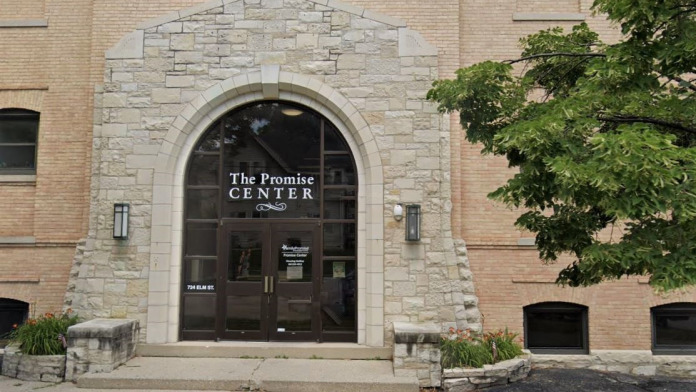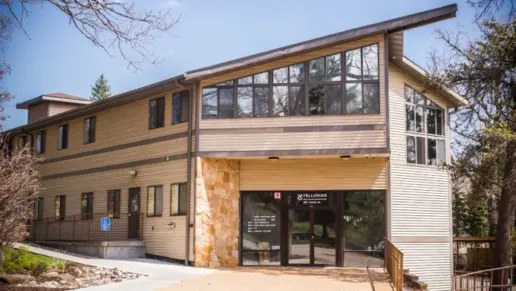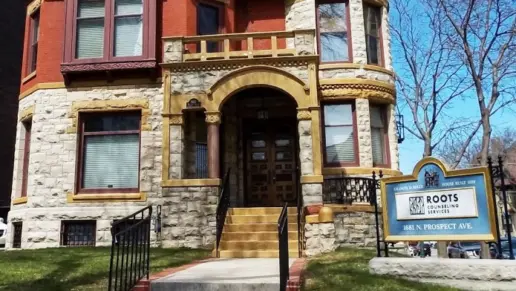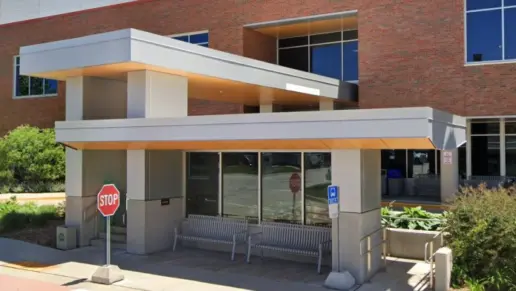About Professional Services Group – West Bend Clinic
Professional Services Group’s West Bend Clinic provides personalized, affordable and flexible outpatient treatment for folks affected by substance use disorder. This facility is located in West Bend, Wisconsin, and serves Washington County residents. Their services include intensive outpatient therapy (IOP), family centered treatment and substance use disorder case management. They integrate recovery focused and harm reduction strategies into their treatment. Recovery focuses on lasting healing, while harm reduction helps you stay safe and healthy in recovery.
Their intensive outpatient care facility serves voluntary clients and those referred by the court. This includes people with OWI/DUI convictions or other legal issues like those involved in Drug Treatment Court or diversion programs.
I think the best thing about the program is that it offers structured and intensive therapy while still being flexible enough to fit your needs. Therapy sessions are designed to perfectly align with your schedule so you can continue your full time job while receiving treatment.
Their recovery approach uses the matrix model which blends individual counseling, group therapy and family education to support recovery. It also includes cognitive behavioral therapy and 12 Step support. The goal is to help you develop coping skills, build motivation and improve overall life management.
Group therapy encourages community engagement. You’ll be part of a supportive community where you can share your experiences, gain insight and build accountability. Family education or counseling fosters stronger communication and understanding with your loved ones. This strengthens your support network and enhances your coping skills.
They offer psychoeducation to address the complex nature of addiction and equip you with tools for emotional and physical wellbeing. You’ll also learn strategies to prevent relapse and maintain lasting sobriety. The facility provides targeted substance use case management services on a county level. This involves substance assessment, care coordination and connection to community resources that support lasting recovery. These include safe housing, vocational trading and medical care.
The facility accepts Medicare and various commercial insurances. They also offer a sliding fee scale which lets you pay for treatment according to your income.
Rehab Score
Gallery

Location
Accepted Insurance



Other Forms of Payment
Financial aid can take many forms. Centers may have grants or scholarships available to clients who meet eligibility requirements. Programs that receive SAMHSA grants may have financial aid available for those who need treatment as well. Grants and scholarships can help you pai for treatment without having to repay.
Medicare is a federal program that provides health insurance for those 65 and older. It also serves people under 65 with chronic and disabling health challenges. To use Medicare for addiction treatment you need to find a program that accepts Medicare and is in network with your plan. Out of pocket costs and preauthorization requirements vary, so always check with your provider.
Military members, veterans, and eligible dependents have access to specific insurance programs that help them get the care they need. TRICARE and VA insurance can help you access low cost or no cost addiction and mental health treatment. Programs that accept military insurance often have targeted treatment focused on the unique challenges military members, veterans, and their families face.
Addiction Treatments
Levels of Care
Treatments
Mental health rehabs focus on helping individuals recover from mental illnesses like bipolar disorder, clinical depression, anxiety disorders, schizophrenia, and more. Mental health professionals at these facilities are trained to understand and treat mental health issues, both in individual and group settings.
Substance rehabs focus on helping individuals recover from substance abuse, including alcohol and drug addiction (both illegal and prescription drugs). They often include the opportunity to engage in both individual as well as group therapy.
Programs


Clinical Services
Assertive Community Treatment (ACT) is a structured way of helping those with major mental illnesses and/or substance abuse by bringing services directly to the patient in home. Instead of hospitalization or an outpatient program, staff members like social workers, psychiatrists, and counselors come directly to the patient’s house for treatment. ACT is used primarily for those with severe and persistent mental illness like schizophrenia or bipolar disorder, some of whom also contend with substance abuse. ACT can be short- or long-term (months to years), and provides the same multidisciplinary, 24/7 staffing of a psychiatric unit, but in the comfort of the patient's own home and/or community.
Whether a marriage or other committed relationship, an intimate partnership is one of the most important aspects of a person's life. Drug and alcohol addiction affects both members of a couple in deep and meaningful ways, as does rehab and recovery. Couples therapy and other couples-focused treatment programs are significant parts of exploring triggers of addiction, as well as learning how to build healthy patterns to support ongoing sobriety.
Research clearly demonstrates that recovery is far more successful and sustainable when loved ones like family members participate in rehab and substance abuse treatment. Genetic factors may be at play when it comes to drug and alcohol addiction, as well as mental health issues. Family dynamics often play a critical role in addiction triggers, and if properly educated, family members can be a strong source of support when it comes to rehabilitation.
Group therapy is any therapeutic work that happens in a group (not one-on-one). There are a number of different group therapy modalities, including support groups, experiential therapy, psycho-education, and more. Group therapy involves treatment as well as processing interaction between group members.
In individual therapy, a patient meets one-on-one with a trained psychologist or counselor. Therapy is a pivotal part of effective substance abuse treatment, as it often covers root causes of addiction, including challenges faced by the patient in their social, family, and work/school life.
Moral Reconation Therapy (MRT) is a modality based on strengthening moral reasoning, that can be used in substance abuse treatment. Originally created to help criminal offenders stop committing crimes, it is a structured approach that includes both group and individual counseling, as well as homework exercises. The MRT workbook is structured around 16 steps (units) focusing on 7 treatment issues, including building a healthy, positive identity; developing a higher frustration tolerance; and forming a strong moral belief structure. Participants meet 1-2 times weekly in groups, and can complete all steps of the MRT program in 3-6 months.
Amenities
-
Private Setting
Contact Information
724 Elm Street
West Bend, WI 53095









